|
Jayme: So, Penny, what is it like coming back to do Matilda?
Penny: It's really great. I know all the people and we're just picking up where we left off, and we already know everything and we're really excited to be back basically. Jayme: Has it been different this time around than the first time? Penny: Well, a little bit because there's some new cast members, but they're doing really well of getting into the show. Jayme: What is your favorite part about playing Matilda? Penny: I think singing “Quiet.” That's my favorite song. Jayme: And what is that song about? Penny: It's when Matilda gets her powers and she's angry with everybody around her. Jayme: When did you start getting interested in acting? Penny: Well, it's when I was on the stage this one time and I figured out I like to perform. Whatever it is, dancing or something, I just like being on the stage. Jayme: And how old were you when you discovered you liked being on stage? Penny: About five. Jayme: Do you aspire to do more acting? Penny: I definitely do. I hope to see myself doing something on Broadway someday. Jayme: Ooh. Do you have a favorite show? Penny: Well, hmm. kind of want to do Beetlejuice: The Musical because I like that one. I want to be Lydia. Jayme: What other things have you done at BHCT? Penny: I've done the Fezziwig's Feast Dinner Theatre Show and A Midsummer Night's Dream with Cherry Street Players. I played Quince. Jayme: Cool. And why should people come see Matilda? Penny: People should come see Matilda because it's really funny and it's a really fun experience, and there's a lot of talented people in it and we're working really hard. Jayme: Thanks Penny!
0 Comments
Jayme: Can you tell me how long you've been involved with the Broken Lemons?
Lindsey: Since the founding. Jayme: When was that? Lindsey: 2019? 2018? 2018 or 2019… Jayme: Do you know how it came about? Lindsey: How I found out about it was, I think there was a Facebook post or something of that nature saying, “hey, if you're interested in playwriting, and you want to join this writing group, just show up!” And I did, and that was it. Jayme: What is your history with playwriting? Lindsey: I had no history of playwriting before this. I have a long history of writing, and I teach writing, but not creative writing. I teach writing at Black Hills State and Western Dakota Tech, but I was interested in learning more about playwriting and trying it out. I'm always interested in learning more about any kind of writing. So, I came to the meeting and I've written a couple things since then, and it's been really awesome and really fun. Jayme: Does what you teach ever trickle into your playwriting? Lindsey: Yeah, I think all writing is creative. Even workplace writing or composition, which is what I teach, still has a creative nature to it, and I think there are writing skills that translate across any type of writing, like learning what your own weaknesses are, learning how to revise. Revision is so, so crucial no matter what kind of writing you're doing. So, yeah, there's some things that translate for sure. Jayme: What is your playwriting process? Lindsey: Oh, God. I guess it's similar to my writing process in general, which is to constantly remind myself that the first draft doesn't have to be good. That's what revision is for, and take advantage of feedback from the wonderful people here (the Broken Lemons) and wherever else I can get it from. Don't try to make the first draft good. Jayme: What is your Broken Lemons show about? Lindsey: It is about sports fans, and fans in general, who are sort of stuck in limbo between life and death. Jayme: Have you ever seen your work performed? Lindsey: Yeah, the last 24 Hour Plays, I got to see one of mine done, and it was awesome. It was so fun. It was delightful because it was better on the stage than it was in my head, because the actors were so good, and they sold it so well, and in my head it's mediocre, but the actors made it great. Jayme: Is there anything else you want to share about playwriting, or the Broken Lemons, or about the performance coming up? Lindsey: I would share that anybody who has ever thought about doing any kind of writing, creative writing, even non-fiction writing should definitely try it, and should find a writing group to be part of, because getting feedback from other people is one of the most effective ways to improve. Jayme: Awesome. You have certainly inspired me to start writing, Lindsey! Thank you! Jayme: Heidi. How long have you been working with BHCT?
Heidi: In a tech role, it's been about a six month period. As an actor and a writer like a year, year and a half, something like that. Jayme: And how did you hear about BHCT? Heidi: I grew up in the area, so always knew it was around. I just did high school theater so didn't really do anything with BHCT. And then I was gone for six years. Jayme: What were you doing in those six years? Heidi: I went to college and then I lived away for a while. At college, I got my BA in theater and English and did a lot of tech theater, some acting, some directing, lots of stage management. Jayme: And what is your job right now? Because we know that you work in the middle of the night. Ha ha. Heidi: I am a residential treatment counselor at the Black Hills Children's Home. And it's pretty much I make sure kids don't wake up in the middle of the night and run off. And then I help deal with behaviors and help them go through their treatment plan and deal with their trauma. Jayme: That sounds like a lot. Heidi: It is. It's a very unique experience. You get used to having little kids swear at you a lot. And it's a time… Jayme: Is that good preparation for stage management? Heidi: I think its more stage management prepared me for the job, but it is because you learn how to deal with interpersonal issues. You learn how to manage people and how to effectively move things along when dealing with hard situations. Jayme: And you're stage managing for 33 Variations, which we're so grateful for. What drew you to stage management? Heidi: That's a fun question. My first show doing stage management was my freshman year of college and it was just, "I want to be involved." And they were like, "You seem like you could do this. Here, assistant stage manage." And then I did stage management for like 10 shows over the next four and a half years. And it didn't really ever stop after that. It was just kind of like, "Oh, this is a weird thing, because I'm a very chaotic person. But with stage management, I'm very organized to a point where it's almost scary." And people go, "How does your brain work like this?" I'm like, "It's just how it works, guys. I don't question it. Have pretty paperwork, be happy." Jayme: There's so many different facets of stage management. Is organization the thing that you like the most or what is it..? Heidi: For me, it's actually not the organization. It's more the movement of all of the parts coming together. Because as stage manager, you are pulling the work that the director and the actors do along with the different technical elements that the designers and the technicians have all done. And you're pulling it all together and making the machine operate properly. You're making sure everything flows smoothly. And that is what I like the most: the flow. Jayme: Awesome. Anything else that we should know about you? Heidi: About me? I really love my cats. They're adorable. And they don't like the fact that I'm never around because I do theater things. But they're very understanding because they get extra scratches and treats. Jayme: Wonderful. Thank you, Heidi, for all your hard work! Jayme: How are you doing today?
Isla: I'm doing really good. Jayme: That’s great! My first question is, what has it been like putting Schoolhouse Rock Live, Jr! together? Isla: Overall it's been really fun. Everybody's so excited for the show to go on and we are loving how it's coming together. Jayme: What character do you play? Isla: I am a Dorie. I'm the dance captain for Dories. Jayme: Cool. What does being a dance captain entail? Isla: Well, being a dance captain, when Merlyn gives us the choreography, the dance captain's in charge of memorizing that choreography. Teaching the choreography that anyone missed, or just keeping them caught up. Jayme: How long have you been in Cherry Street? Isla: I've been doing this since the Fall of 2018. Jayme: Wow! …and what have you learned? Isla: I've learned many tips and tricks on how to project, how to get my point across as an actor, and how to have many different personas: sassy, more melancholic, evil, grumpy, and sometimes I’m just myself when I'm on stage. Jayme: Awesome. Do you bring any of these things into your real life? Isla: I feel like theater has helped me bring me out of my shell and I'm more outgoing and energetic and dramatic because of it. Jayme: I know you worked on the mainstage production, Tommy, and are going to be in Matilda. What's the difference between working in Cherry Street and working in the bigger theater? Isla: I'd say, well, the first difference that's comes to mind is that everybody gets a part in the Cherry Street play. Everybody's included. But for a mainstage you have to audition and are not guaranteed a part. You have more components that go into a bigger show: prop and set wise. But I did play Elsa in Frozen that Cherry Street did and everything was super cool. I'd say that was one of my favorite shows here. Jayme: Why was it your favorite? Isla: The set was awesome, and it was my first time being a main role in a show, so that was pretty cool. But what sucked is that I got laryngitis the week of the show so my singing sucked, but I loved the show. It was a really fun experience. Jayme: Do you think you're going to do theater more in your life? Isla: Yes, I'm going into high school next year, so I'm going to do school plays there hopefully, and I'm going to be involved with Cherry Street until they kick me out of here...They’ll have to kick me out. Because, I love it here. Jayme: Would you come back and help direct or... Isla: Yes! I am actually assistant directing a Summer Camp this summer in June... It's young kids. They're building a play from the ground up, so that's going to be a fun experience. Jayme: I heard you work with your sister. What's that like? Isla: It has its moments. There's definitely parts that I enjoy because when we go home we can practice together and help each other memorize stuff. But then the fact that it's my sister. I love my sister, but sometimes it's, "Oh you're my sister, right." Jayme: Yeah. I suspect you speak to your sister differently than the other Cherry Street kids? Isla: Yeah, definitely. There's definitely that, "You're my sister. I can talk to you this way." Jayme: And what's it like being a real big kid in the room? Isla: It's definitely different because past years I've had people my age that are here that I can just hang out with, but now I'm helping the younger kids get used to the theater environment, and helping immerse them in the culture of theater. That's been different, because this is the first play I'm the only 14 year old here. I've missed my friends dearly, and I wish they were in this play, but I'm excited that I get to take on a leadership role this time. Jayme: Great. Anything else you want to add? Isla: Well, if this is going on the blog, please sign up for the next semester of Cherry Street if you are from ages 8 to 14. It is a really fun experience and you would really enjoy it! Jayme: Abby, can you tell me a little bit about how you got into costume design?
Abby: I started performing in high school. I was in all of the plays and I went to college and quickly wanted to pursue a theater arts major. And I actually took costume design as a required class. You needed one design class and I took it and I fell in love with it. I really enjoy drawing and I really enjoy digging into character development. And that was a good intersection of the two. Jayme: Cool! And so are you now pursuing it as a career? Abby: I kind of am? I still really love performance and I really love design and I am slowly but surely building up a design portfolio and I hope that will take me places. Jayme: How does one break into costume design? How do you make it a career? Abby: That is a great question that I'm still figuring out. Most of what I've been told by professionals in the industry is that it's all about the people you know. But I would argue it's about the people you know and the amount of work you're willing to put in. Working with people, having good people skills is a huge part of it because you are designing for humans. You're very closely interacting. Maintaining good connections and just studying. Constantly studying. You're never done learning what there is to know about clothes…ever. Jayme: And how did you get involved with BHCT? Abby: So I am from Rapid, but I never had a chance to really get involved with the community theater when I was here still in high school. I was too busy. I went to school, college in Wisconsin, and then basically the pandemic brought me back home. And I was really curious about maybe getting to work with the community theater now that I wasn't going to school. And I had more time on my hands. I was asked if I wanted to do Charlotte's Web, which was the last summer series show next to Sense and Sensibility. And I basically just called the theater and said, "Hey, I want to get involved and do theater and things. I do costume design and whatnot. I would love to get in touch," and they put me in touch with Chris and then they gave me a tour. It was Ryan and Zach at the time. They gave me a tour and they just asked what I wanted to get out of my time. And I said, "I would like to design at this point." And that was it. Jayme: The rest is history… Abby: Yeah. Ha ha. Jayme: Are there any memorable moments from the shows that you've designed here so far? Any behind the scenes things that we laymen wouldn't know about costuming? Abby: There's all sorts of things. And a lot of the costume designing is making it kind of inconspicuous such that you're not really thinking about it, because it just feels so natural, if that makes sense. What you're looking at. But I guess doing Cherry Street, I designed their winter show, Midsummer. And working with the kids, I had never worked with that age group before and it was amazing. Just how they interact with costumes and clothing compared to adults is fascinating. And just their attitude and willingness towards wearing a funky costume and having funny hairstyles, stuff like that. I guess I had to be a personal dresser for Men on Boats. I was an actor in that show and I costume designed and I had to help Jenna get dressed every night because her character had one arm. Jayme: That's amazing. Any final thoughts about costume designing at BHCT that you want to add? Abby: I hope we get more people interested in design here through the workshops and whatnot. I feel like I'm the youngest one here and it'd be great to get more people involved. And if you're worried about finding a place in the mix, I find this is one of the most nurturing and welcoming theater environments to do that in. Everyone you work with just wants to see you succeed. Because if you succeed, then the community's succeeding. So yeah. Give it a shot, take a workshop, encourage BHCT to offer more workshops, and then come and design here because it's a really awesome way to get involved. And we always need people. It takes a literal village to costume a show and we love to have people come and help. 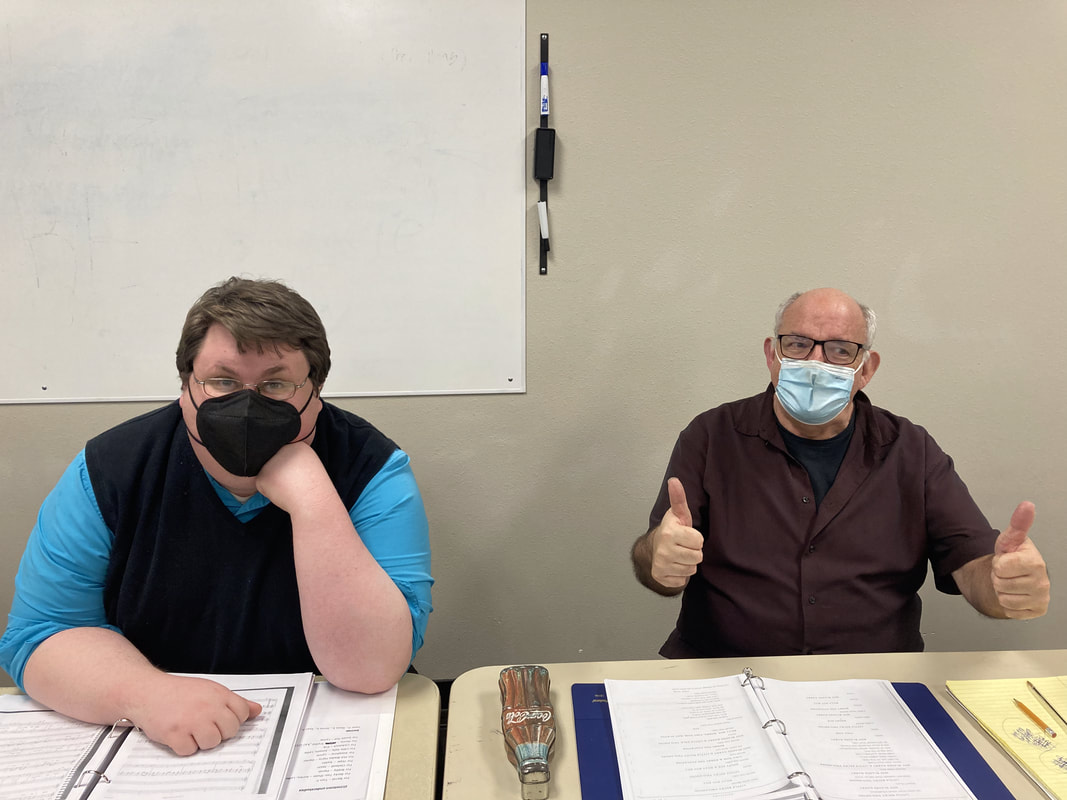 BHCT’s Artistic Director sat down with the directors of Urinetown, Dave DeChristopher (right) and Ryan Puffer (left) to talk about their start in theater, why they wanted to direct Urinetown, and what makes it such a special show… Jayme: Can you tell me about how you got started in theater? Ryan: Well, I started doing theater when I was about 12. I'm from Aberdeen, South Dakota, and my sister was very involved in theater, and I thought it looked like something cool. And I started doing it and I haven't stopped doing it since then. Before coming here, I worked professionally in Kansas City, Missouri, and in Lacrosse, Wisconsin, both admin wise and artistically. Now I'm here. Dave: I, like Ryan, started very young, probably high school. And I don't think I ever went more than three or four months without doing a show. After a couple years back in my hometown, Toledo, after college, I moved to New York and was there for 25 years. And that was just overwhelming in every way, both for the excitement of seeing so much live theater with professionals and also for getting a chance to work at all levels of theater. And then I stumbled back home and started getting into administrative stuff, more teaching, more artistic directing a lot more playwriting. And then I wandered to the Black Hills to be Education Director here at BHCT. Jayme: Ooh, what's a ... Do you have any fun stories about your time in New York? Dave: The origin story of me moving to New York is my favorite because my college did a summer stock, which, when I was in college, they tried to get it going and they couldn't get it going. So a few years later they got it going and they contacted me and I was excited to go. I'd been working professionally in Toledo. So I get there and there's this girl, who's this crazy girl. Jeanie is her name. And she was chasing this boy. We're sitting on the porch one day after a show drinking. And she's like, "Terry's going to New York." And I said, "Okay!" And I was like, "I'll go with you." So we just went on a whim and it was like we were like the Beverly Hillbillies in the big city, trying to figure out what to do. Jayme: I love that. Okay. What made you interested in directing Urinetown? Dave: It's such a delicious show, and so right for this time when people are still a little shell shocked from COVID because the play is so fun and upbeat. It's teasey and mischievous, which is just what people need, I think. It's not mean, but it sort of pokes fun at all of the pretensions of corporate culture, of politics, and mostly of theater, because we're very self-important about our musicals in theater. And it's so delightful the way it sort of pricks all those pretensions in a wonderful, wonderful way. And it's good, too, which is amazing. A lot of spoofy stuff is not that well written, but this show won the Tony for Best Score and for Best Book of a Musical. Jayme: Dave, you are probably best known at BHCT for working with Cherry Street and the Well Dones. How does your process change from room to room? Or does it? Dave: I think I plant ideas in any room I’m in. Working with adult actors I don’t have to guide them as much. I give them time to ramble and even though kids can make great suggestions, they don't do it as often as adult actors. And I think it's really important to have a space, not just that's safe, but models collaboration and people feeling free to express their ideas. Jayme: Ryan, what about you? What attracted you to this show? Ryan: I first learned about the show back when I was in high school. I saw two different college productions of them fairly close together and they were two very different productions and I was just drawn to the show so much because it's just so smart and so funny and you don't always get that in musical theater. The show makes you think and makes you laugh. And, of course, I enjoy all the references to making fun of the other shows. You got some Fiddler on the Roof and some West Side Story slander, so that's very fun. And the characters are so interesting, too, and so varied and that it's fun because this is a show where the ensemble is a bit more island of misfit toys than some ensembles because it's not polished, pristine dancers. It's people doing the dancing and the singing and stuff. And that's really fun to see and really cool to do at a community theater level. Jayme: Awesome. What's the process been like? Any fun stories in the rehearsal room? Ryan: I mean, we have one of the most ridiculously talented cast I've worked with here and I've worked with a lot of talented cast here. It's a such a fun combination of new and old people. Well ...New and veteran performers to BHCT. Dave: And they bonded so fast. Ryan: Yeah. Everything just works together so smoothly because they're all just so talented on top of their stuff and it's so fun to see. And I mean, I love just listening to them sing. Music rehearsals can be boring when you're the director or the stage manager, but just getting to sit and listen to this cast sing is one of my favorite parts. Dave: I love the production team, too. Everyone is very insightful and respectful of the actors, whether it's Ryan, who is assistant directing and also choreographing some of the numbers, or Vonnie Houchin, who's great with the musical numbers...I feel like it's a good balance of mentoring and also leaving people free to discover, which is really great. Even if we don't know the answer to something, we just say that openly and say, "We'll find it as we're doing something." Jayme: All right. Why should somebody see a show about urine? What about urine are we selling? Ryan: I mean, the show is so much more than urine, Jayme. And I think that's really it, is that I think people might hear that title and be like, "Oh, that sounds gross," or "Oh, that sounds juvenile," but it's just so much more than that, because it’s a satire, like you said, on musical theater, on politics, on government, and all that stuff. There's so much more to it if you can get past the urine. Dave: I mean, if you haven't been in a theater a while, think about how much you miss live theater and how much fun it will be to come and see something so exciting. And support the arts in Rapid City. Ryan: And getting to laugh with a bunch of strangers. Dave: Oh yes. Ryan: We miss it. Jayme: Anything else? Dave: No. I have to go to rehearsal now, Jayme. Stop bothering us! Jayme: Ha ha. Okay! Urinetown performs March 18-27th at BHCT! |
BHCTWe love talking to our artists! Archives
June 2022
Categories |
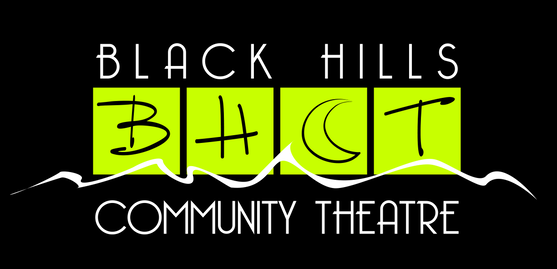
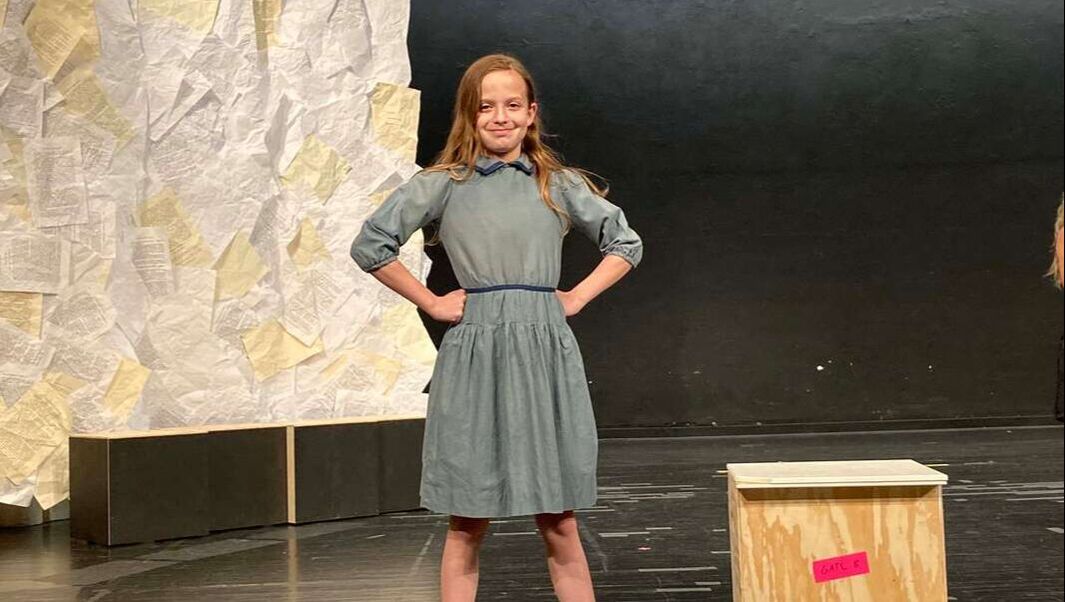
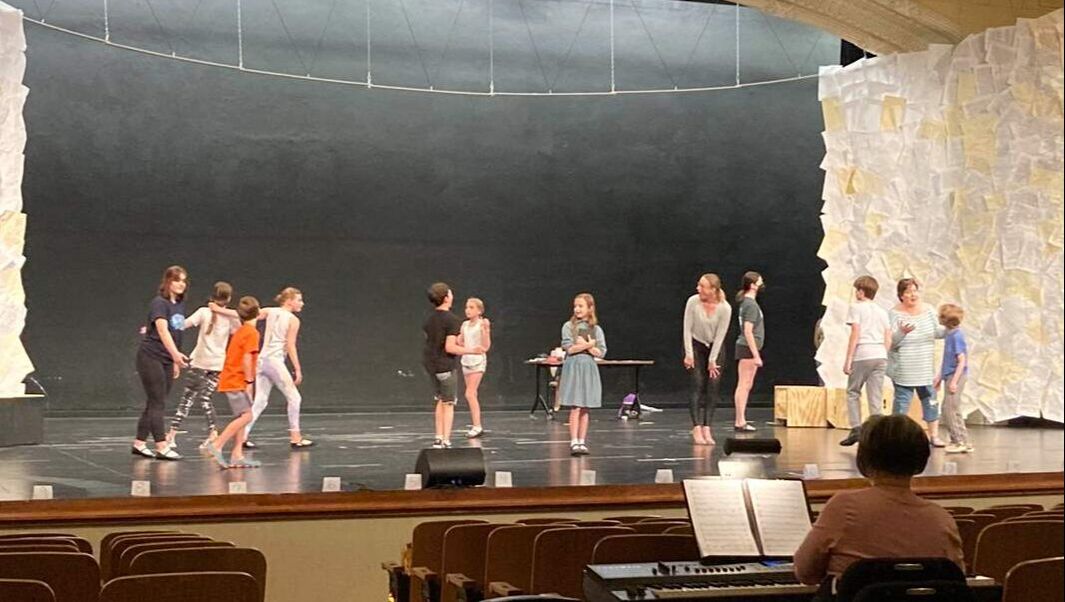
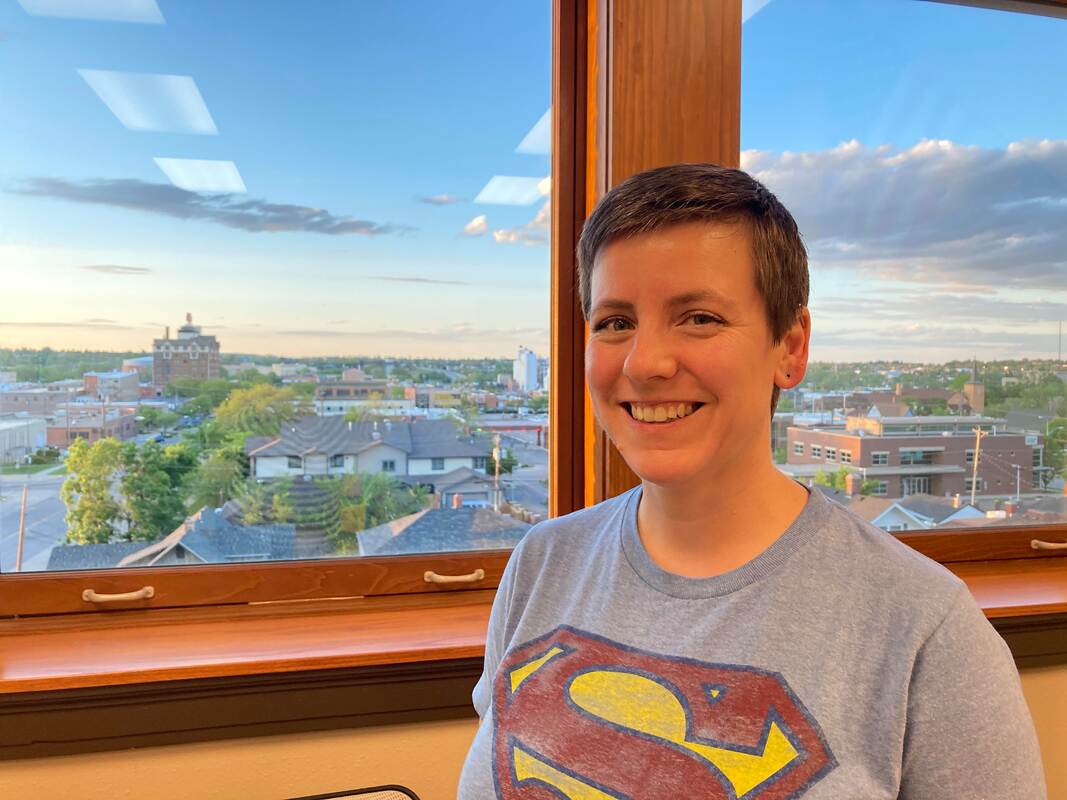
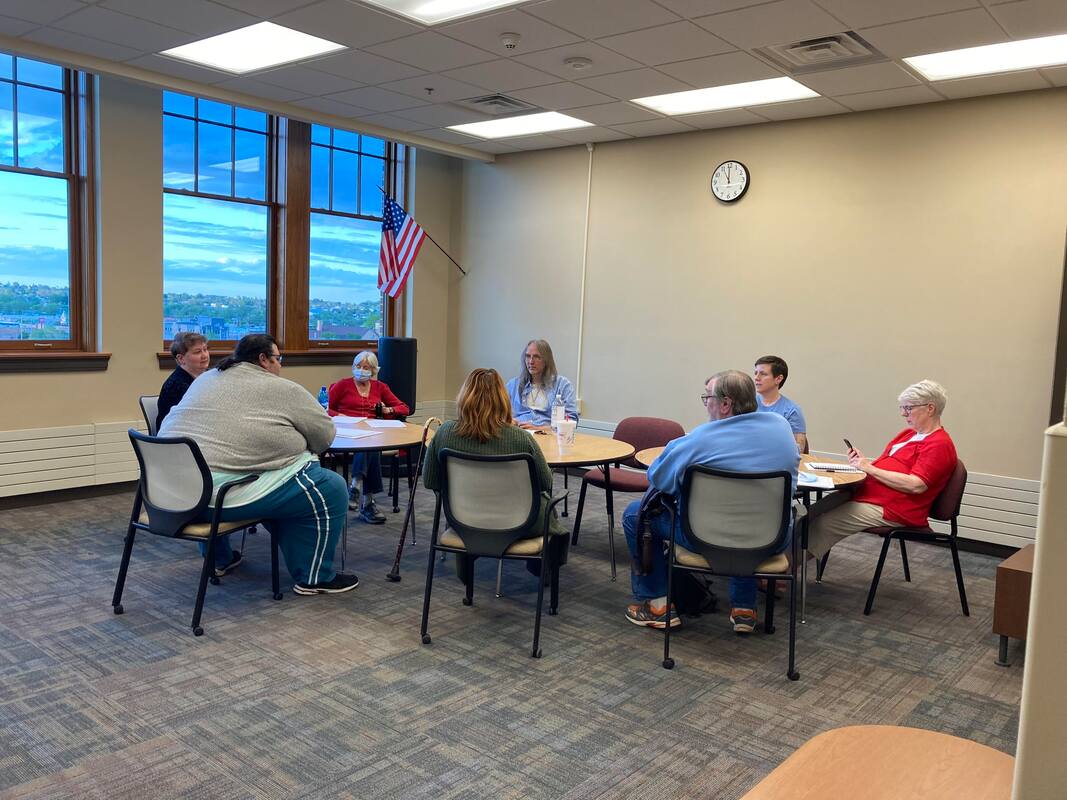
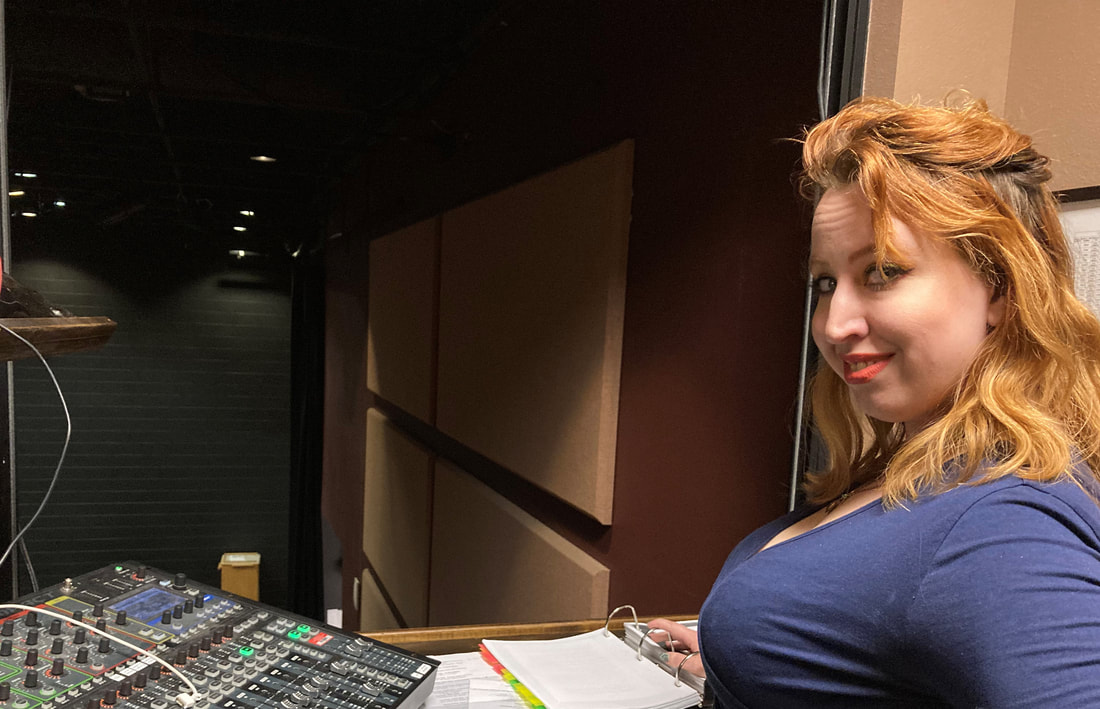
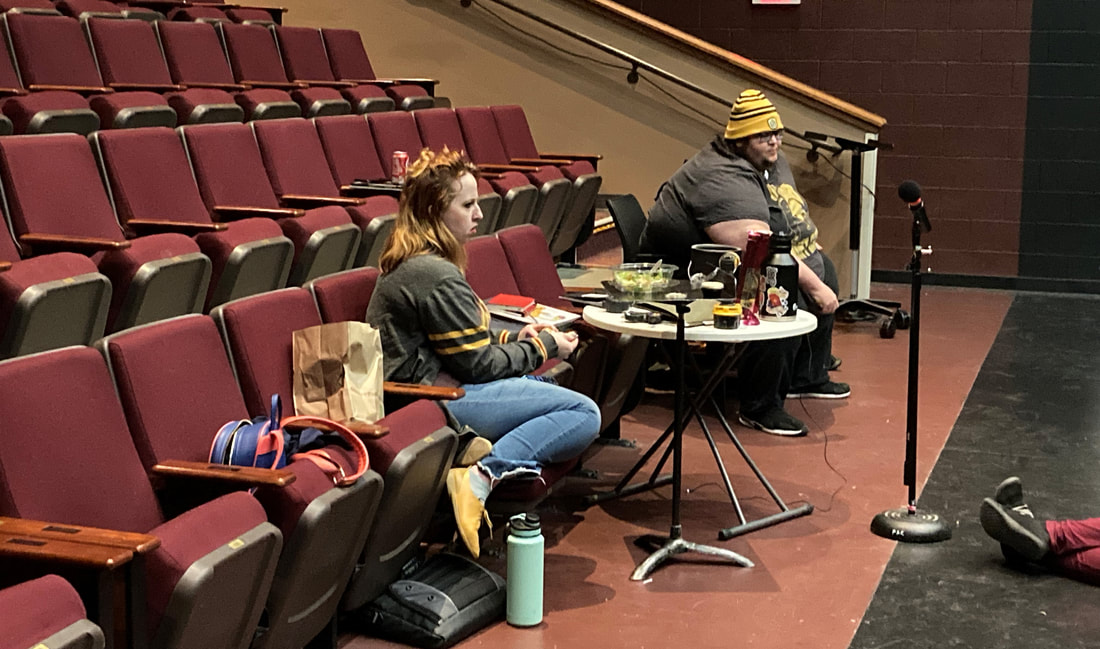
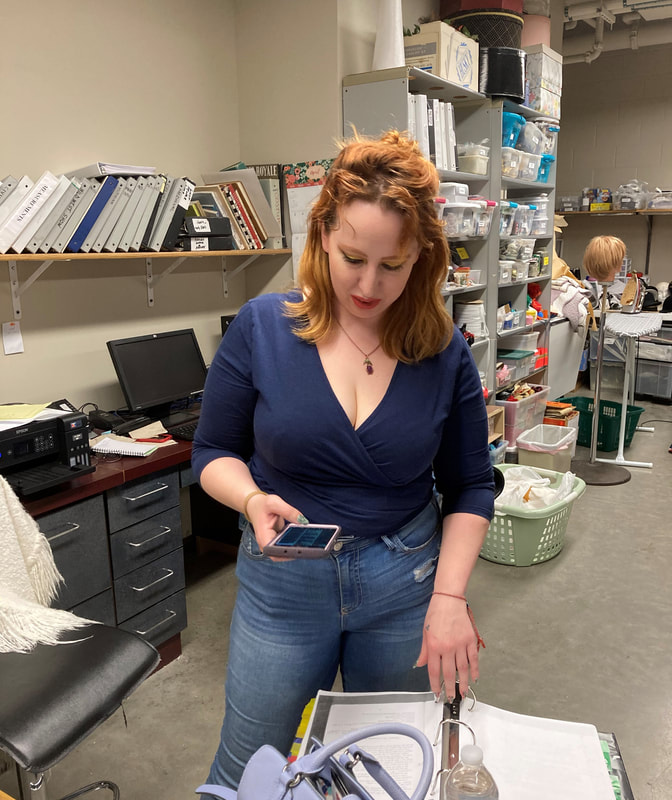
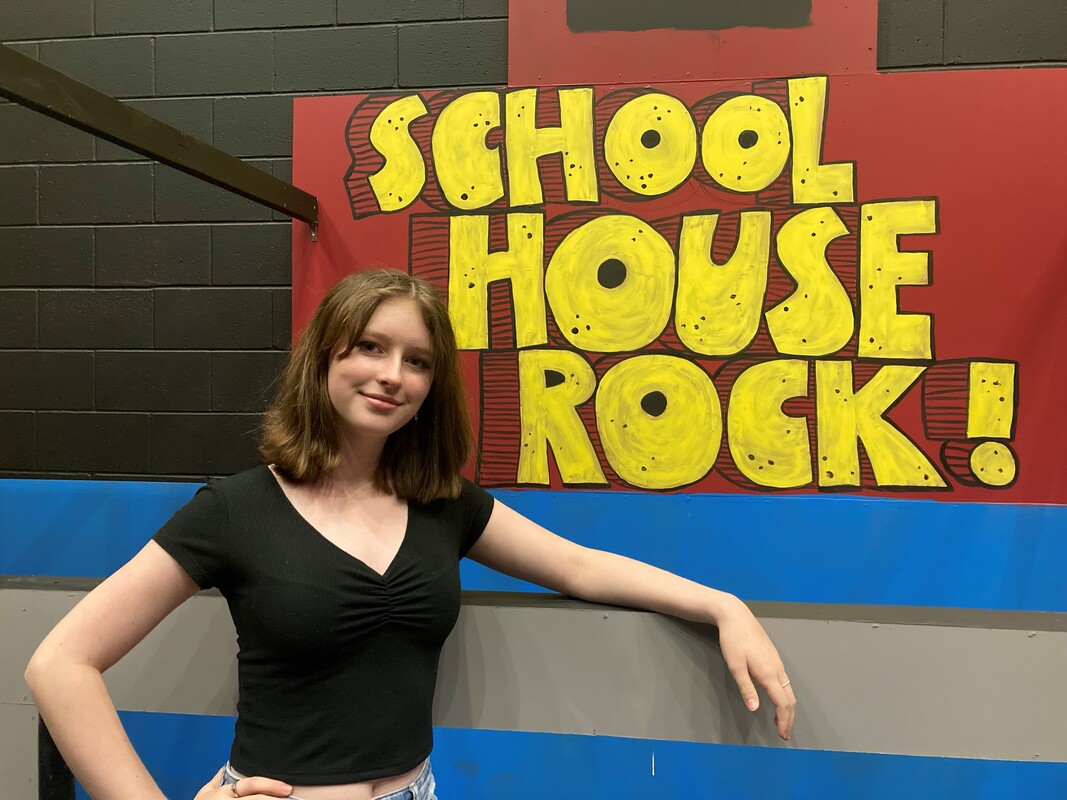
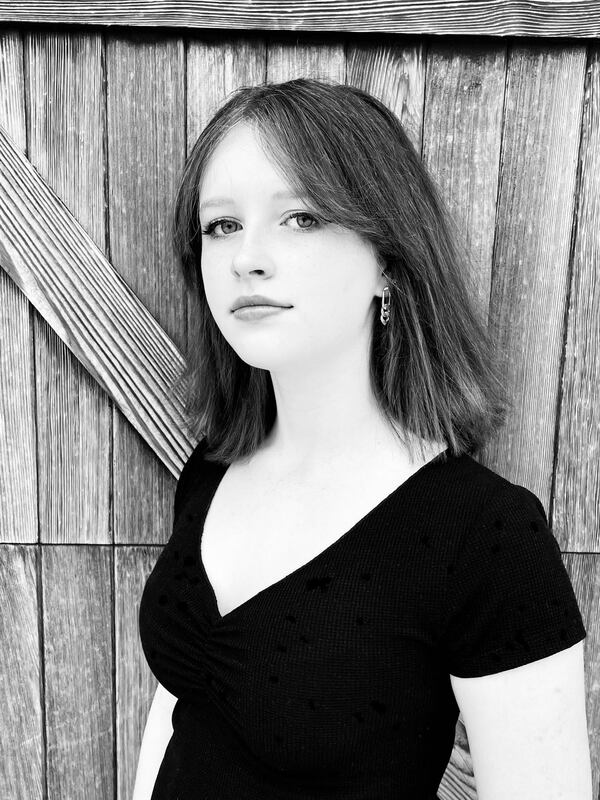
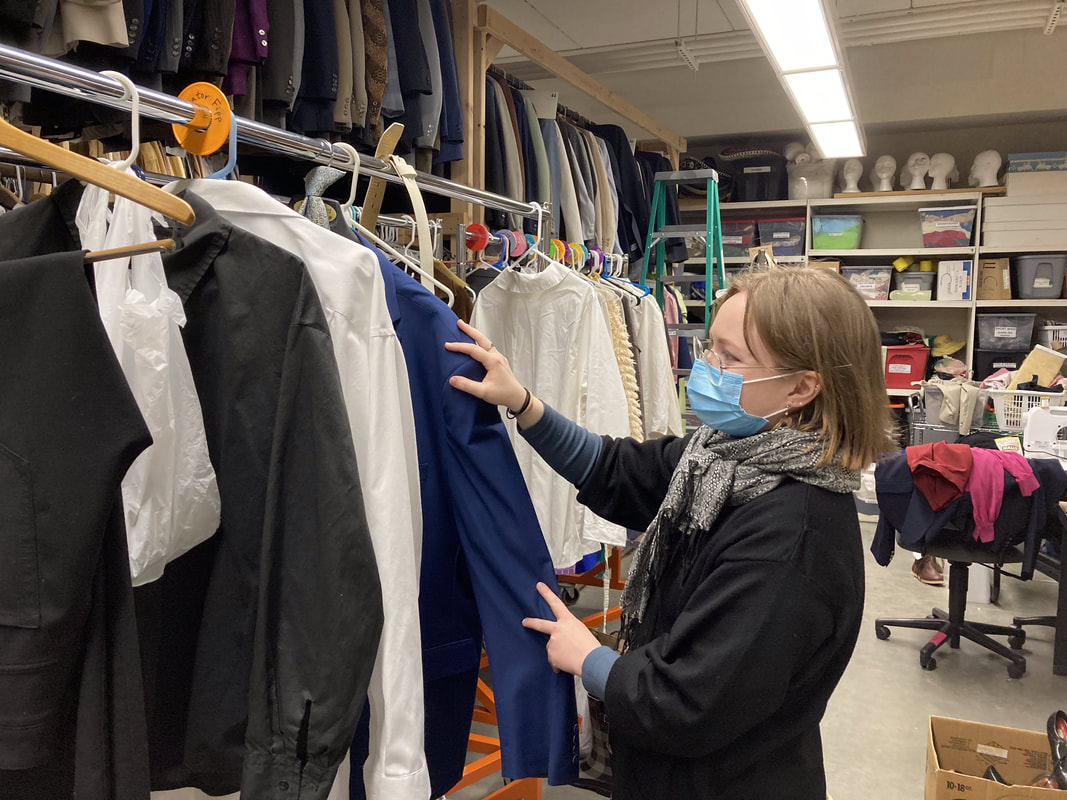
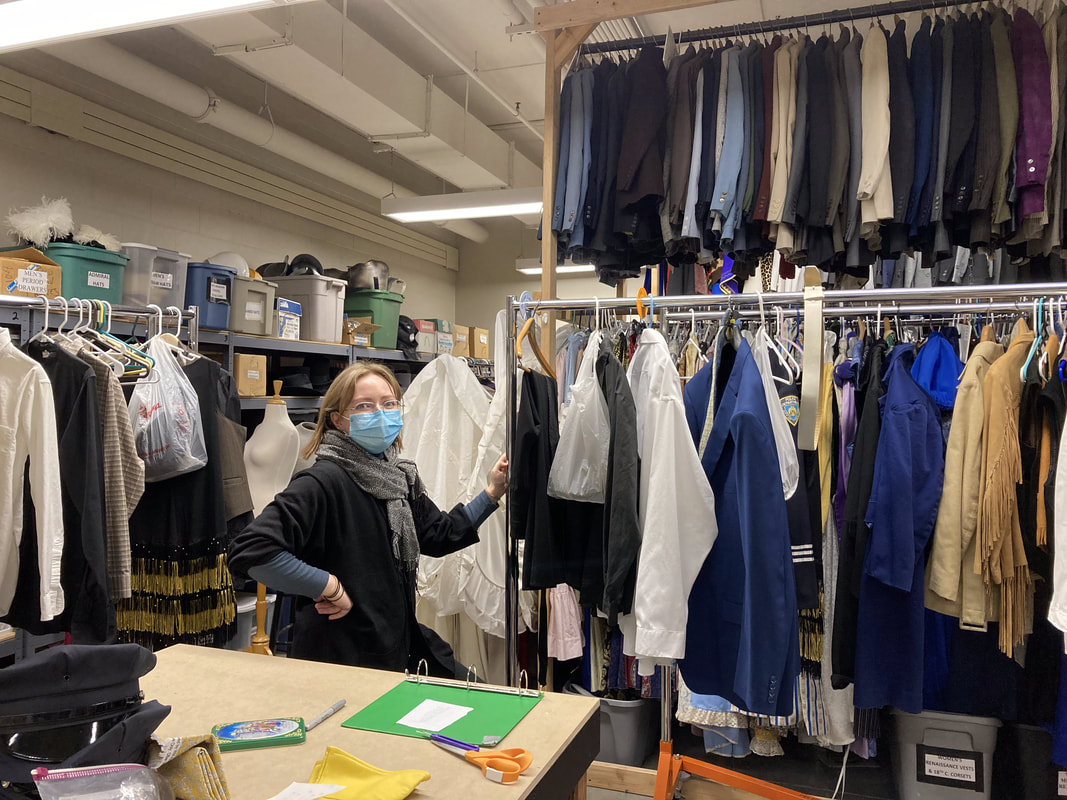
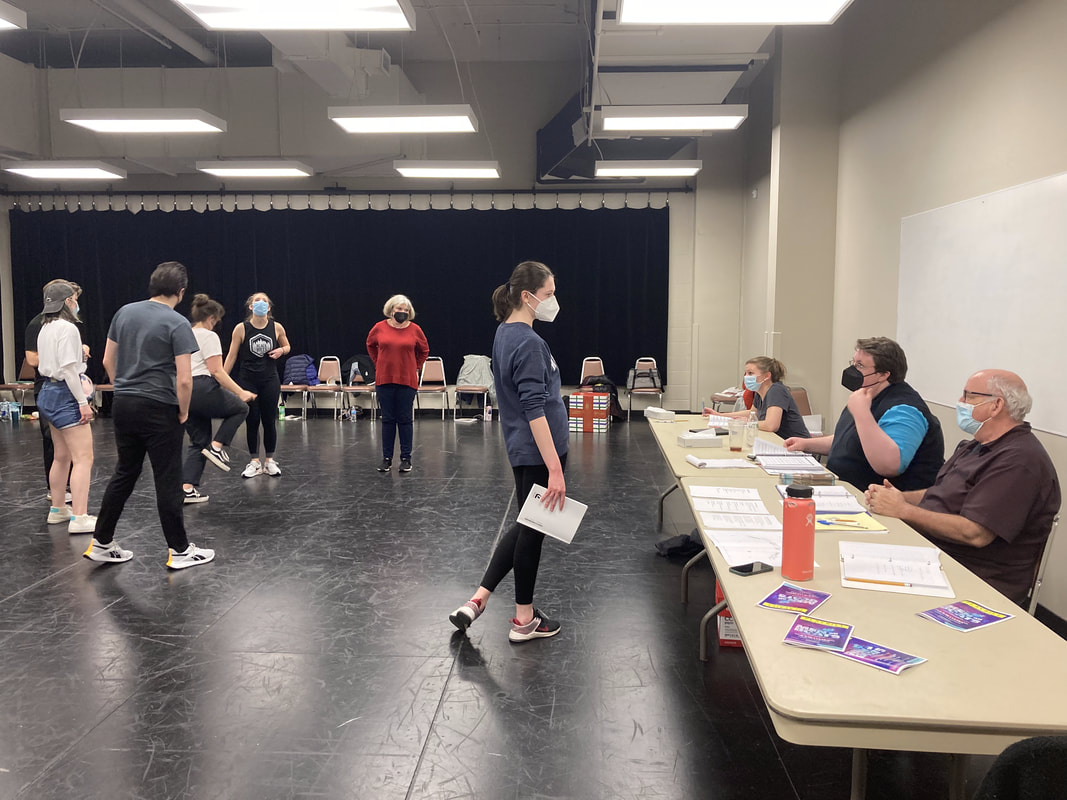
 RSS Feed
RSS Feed